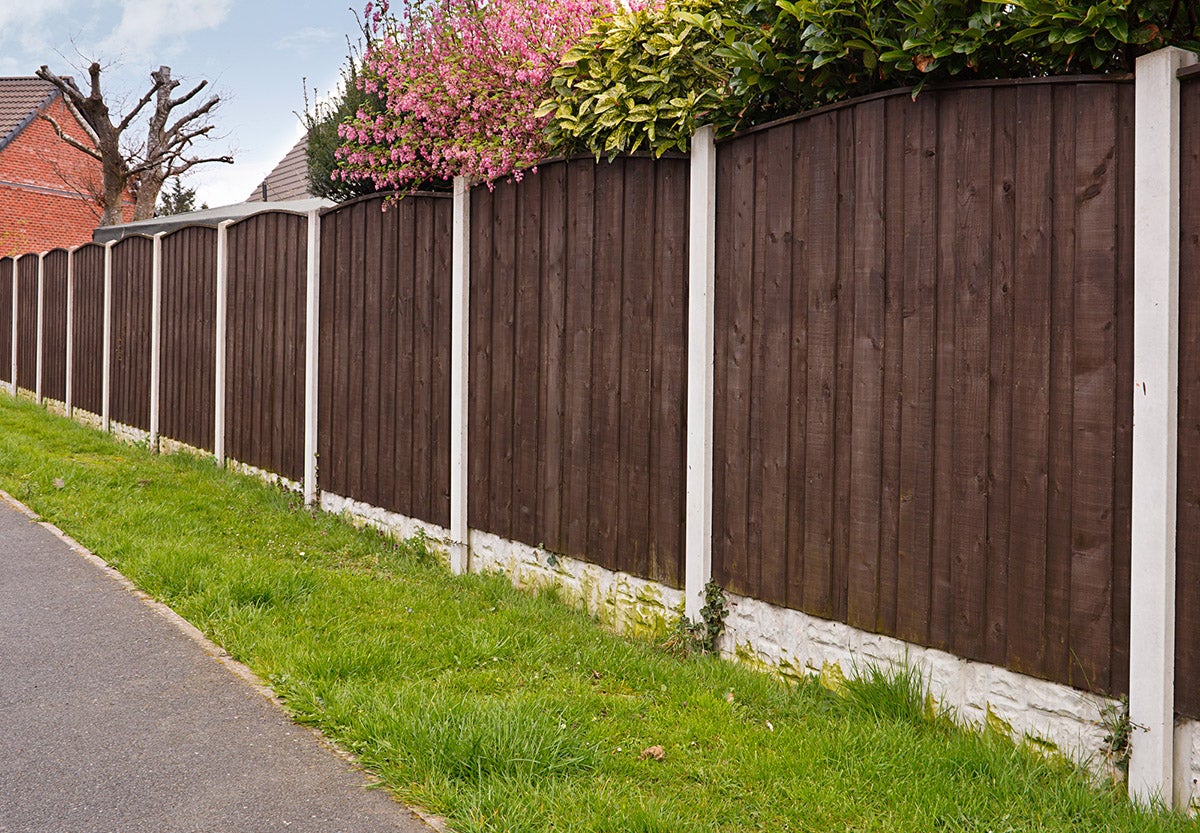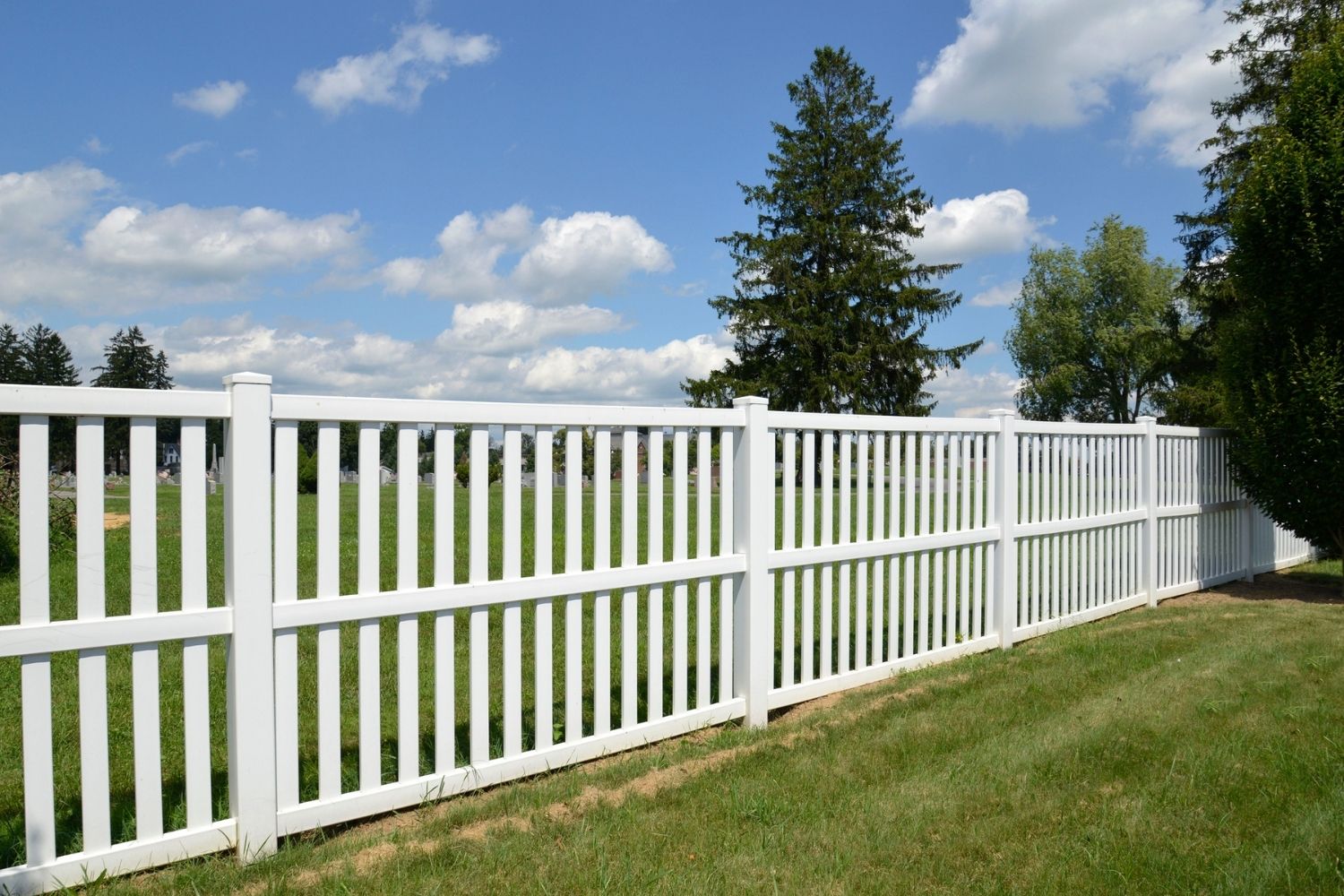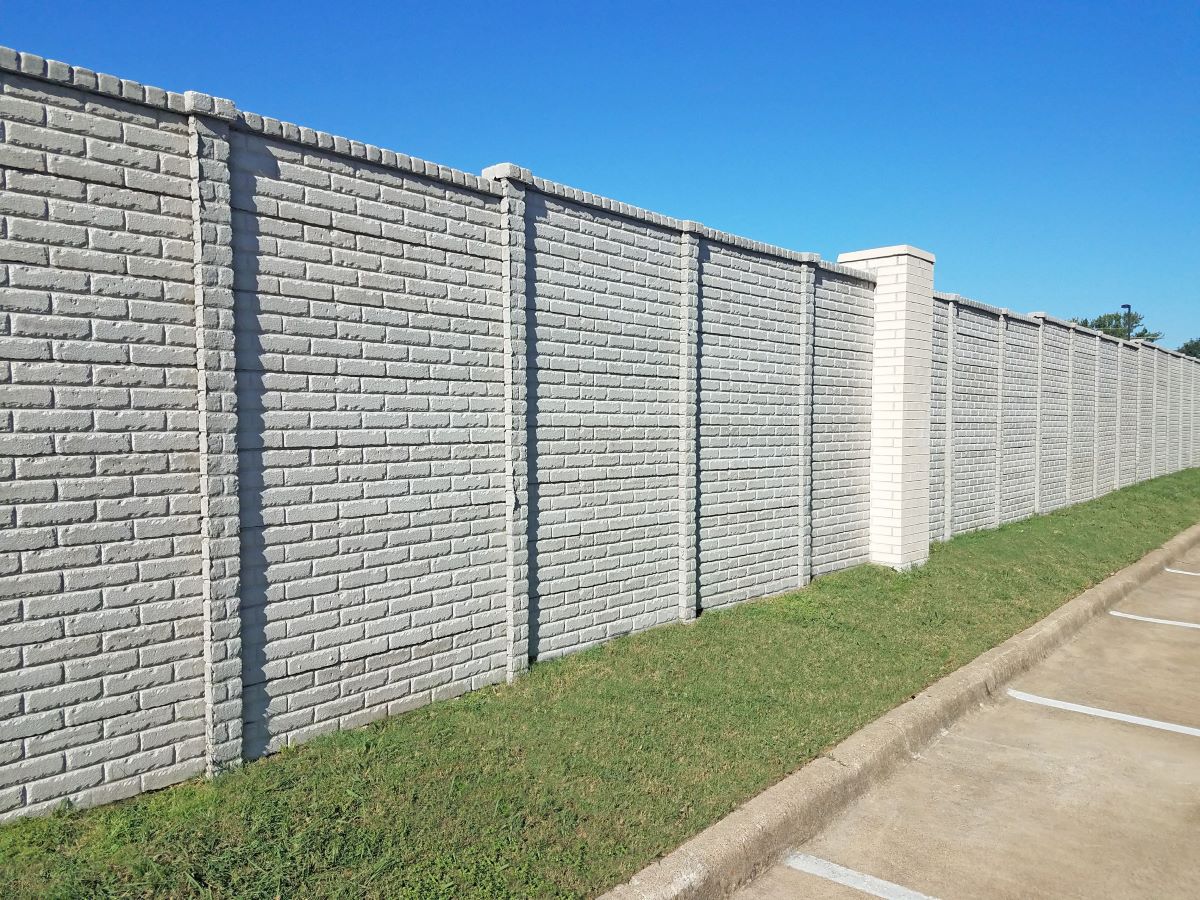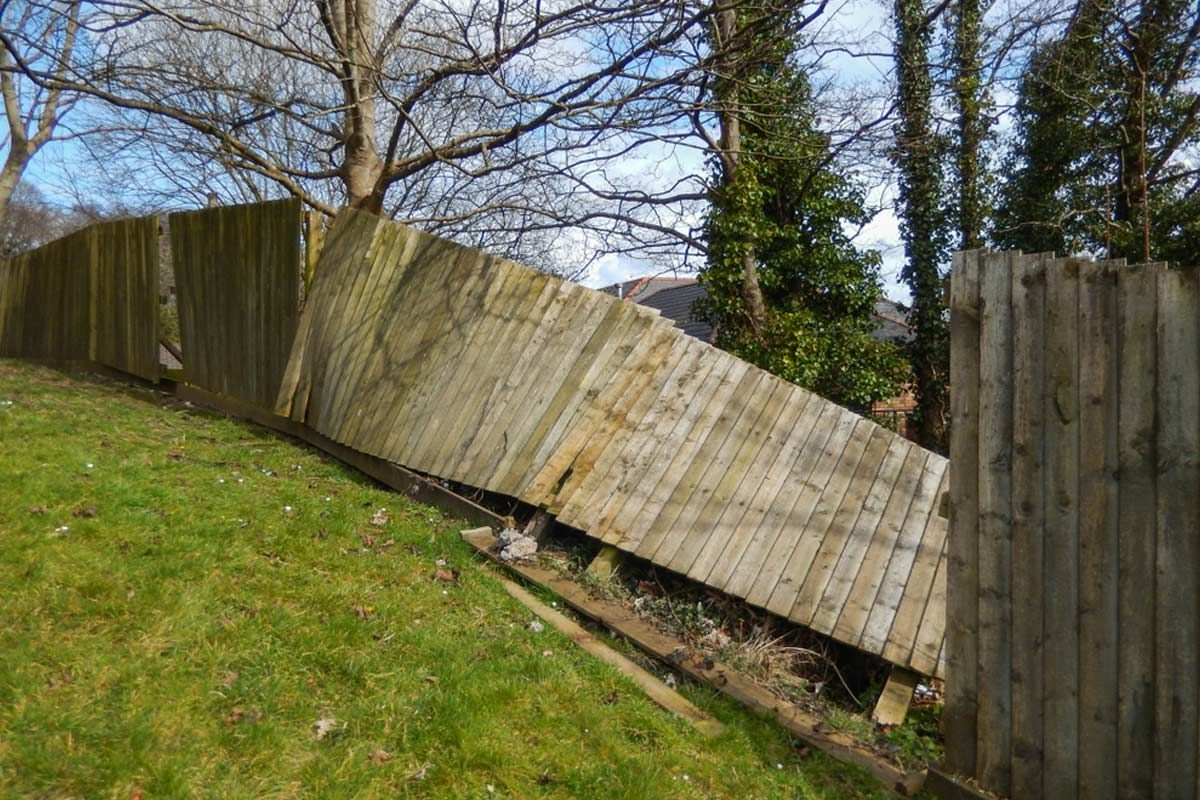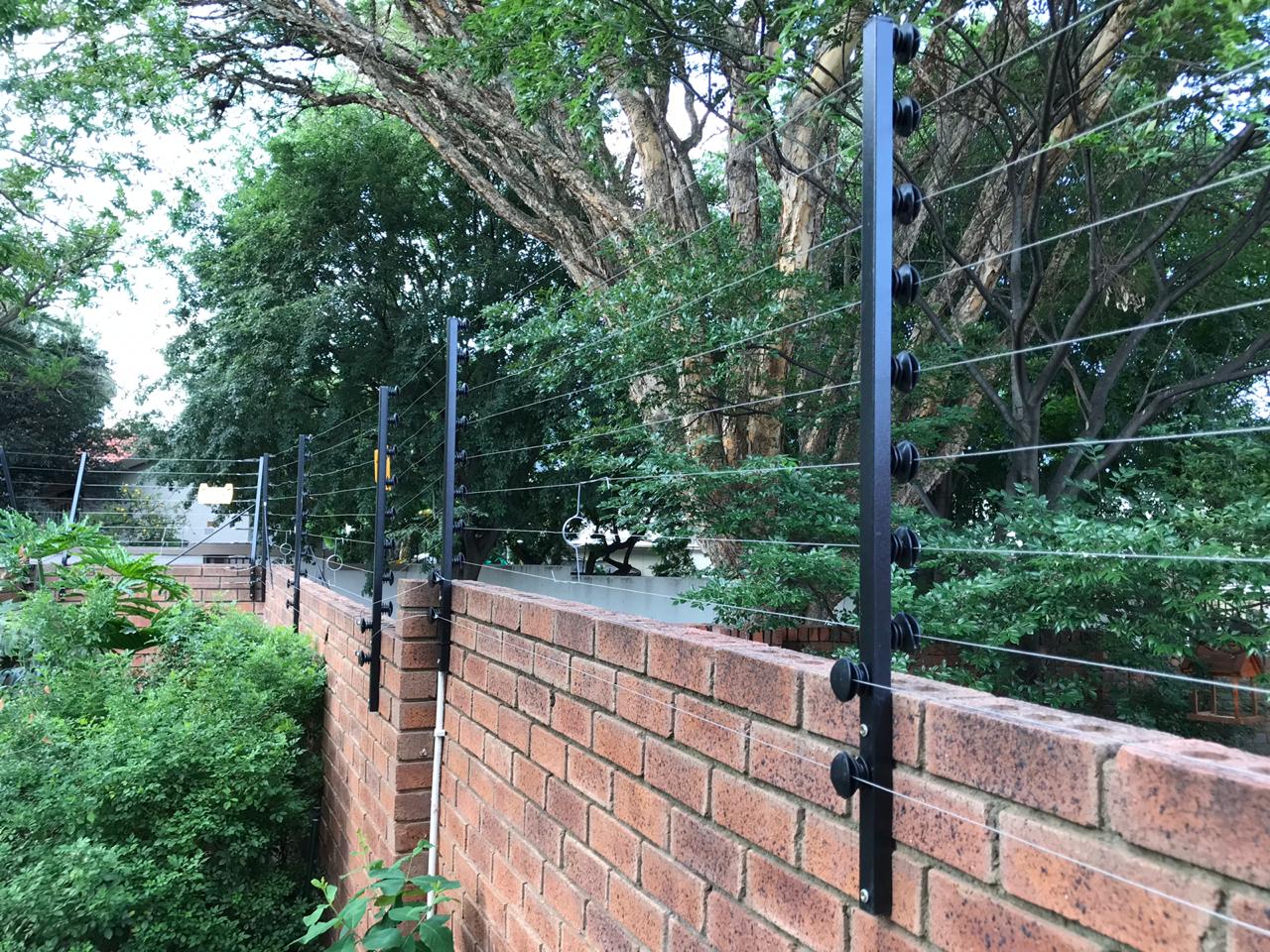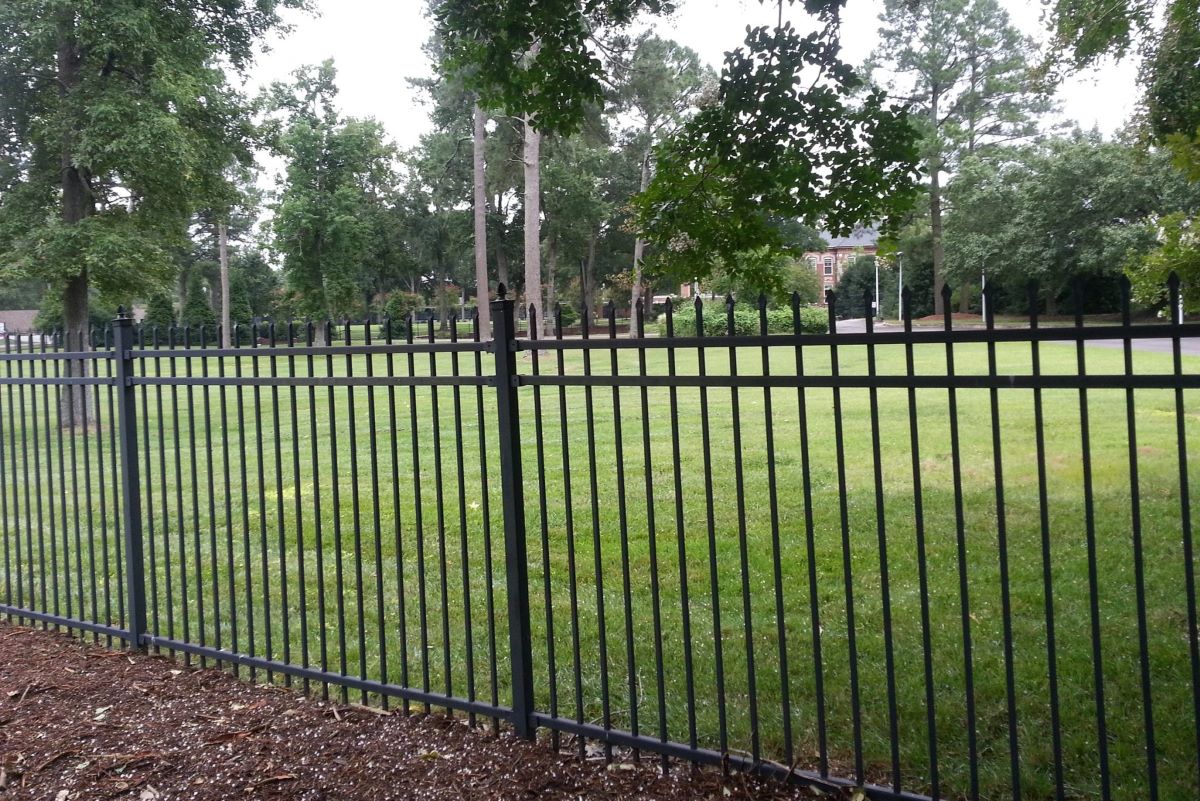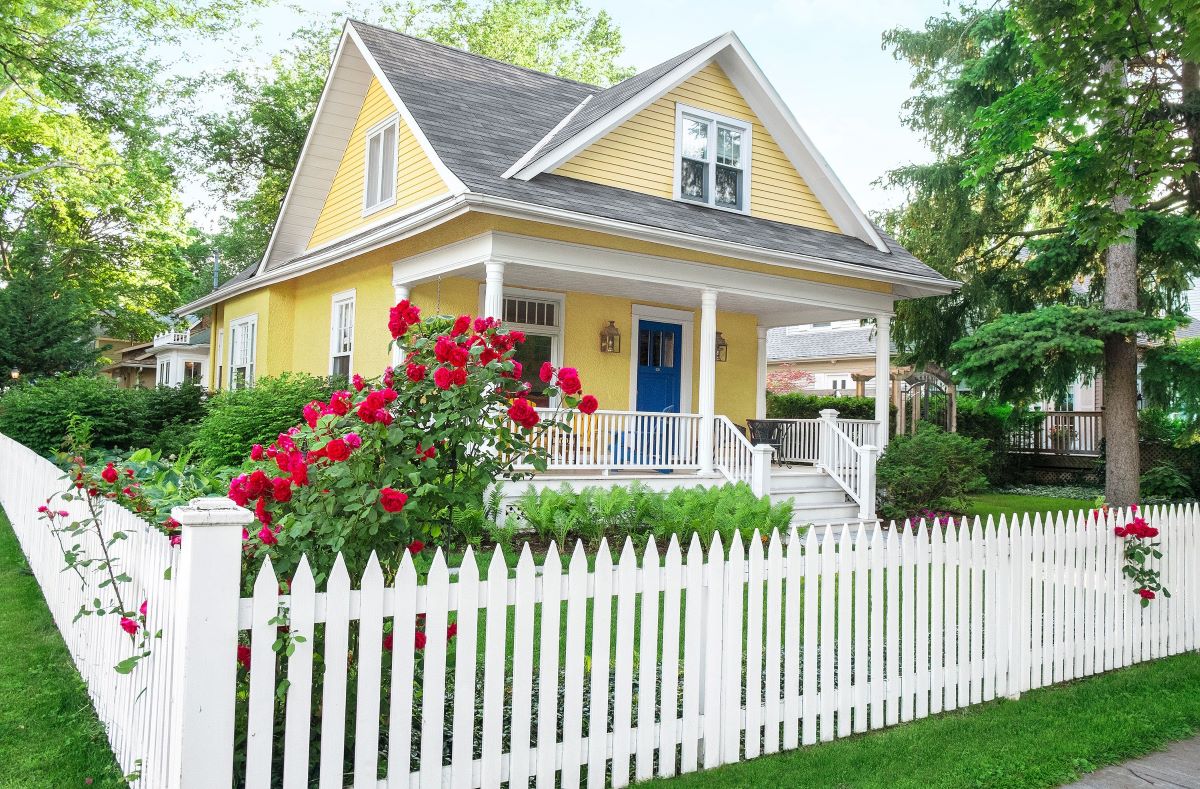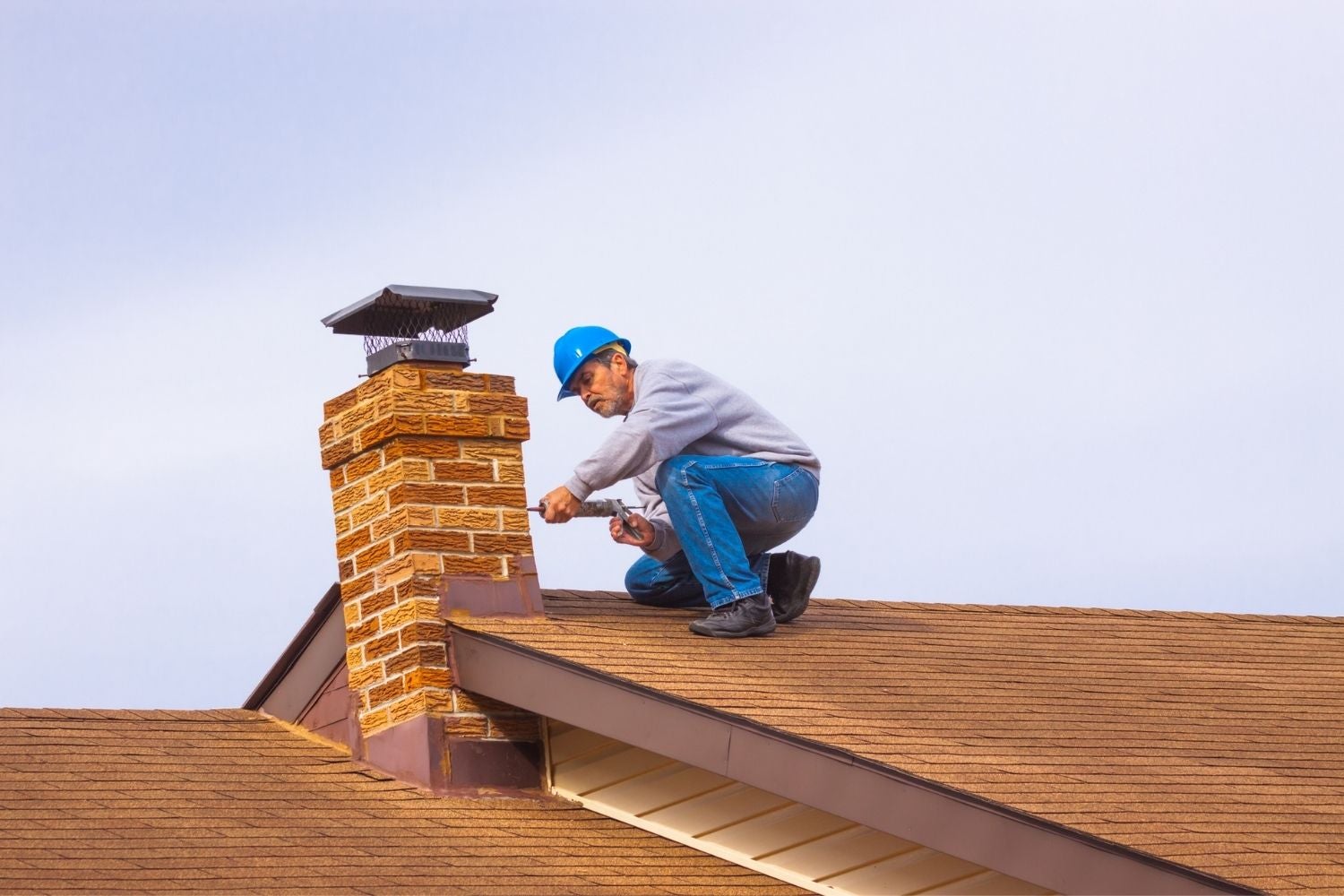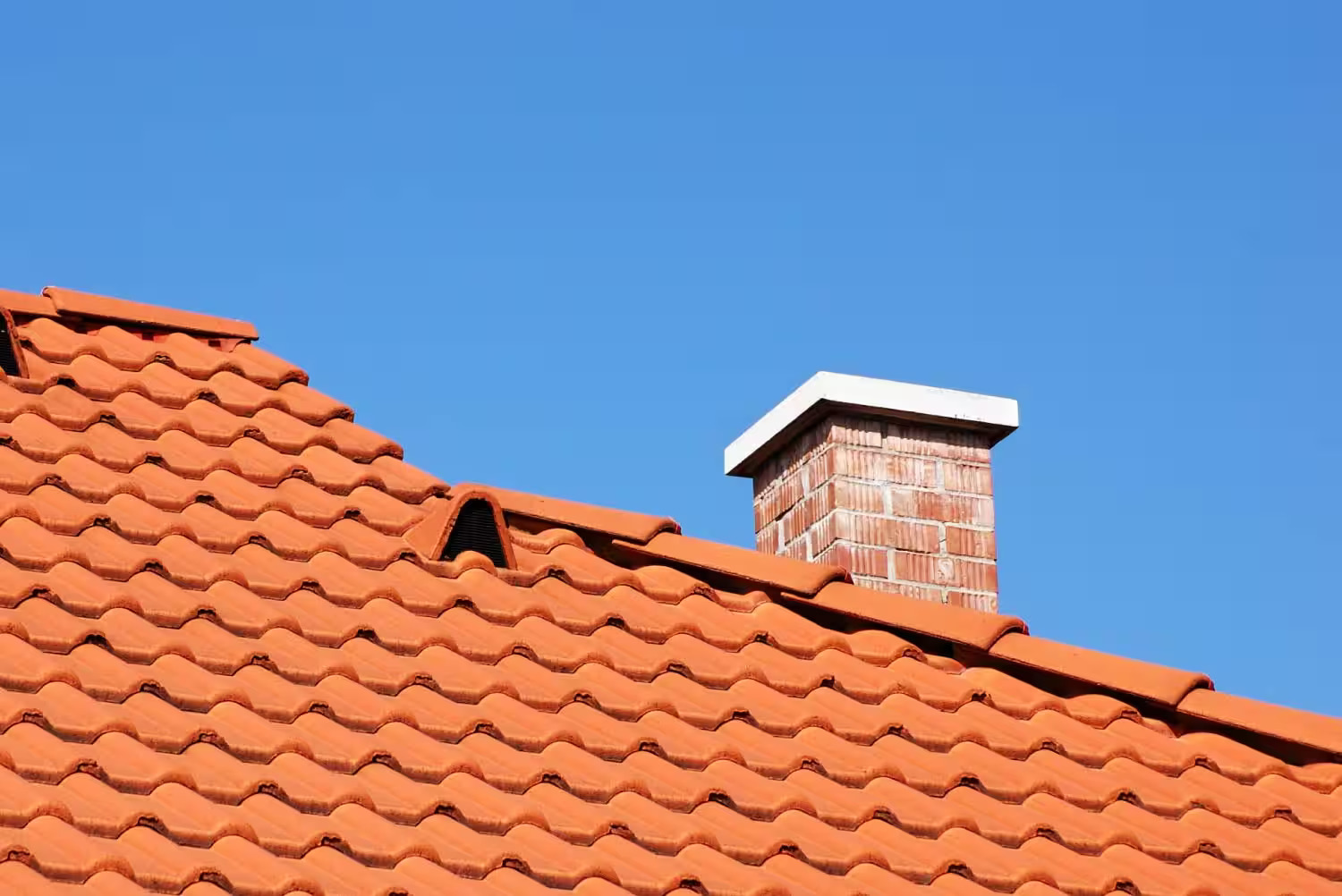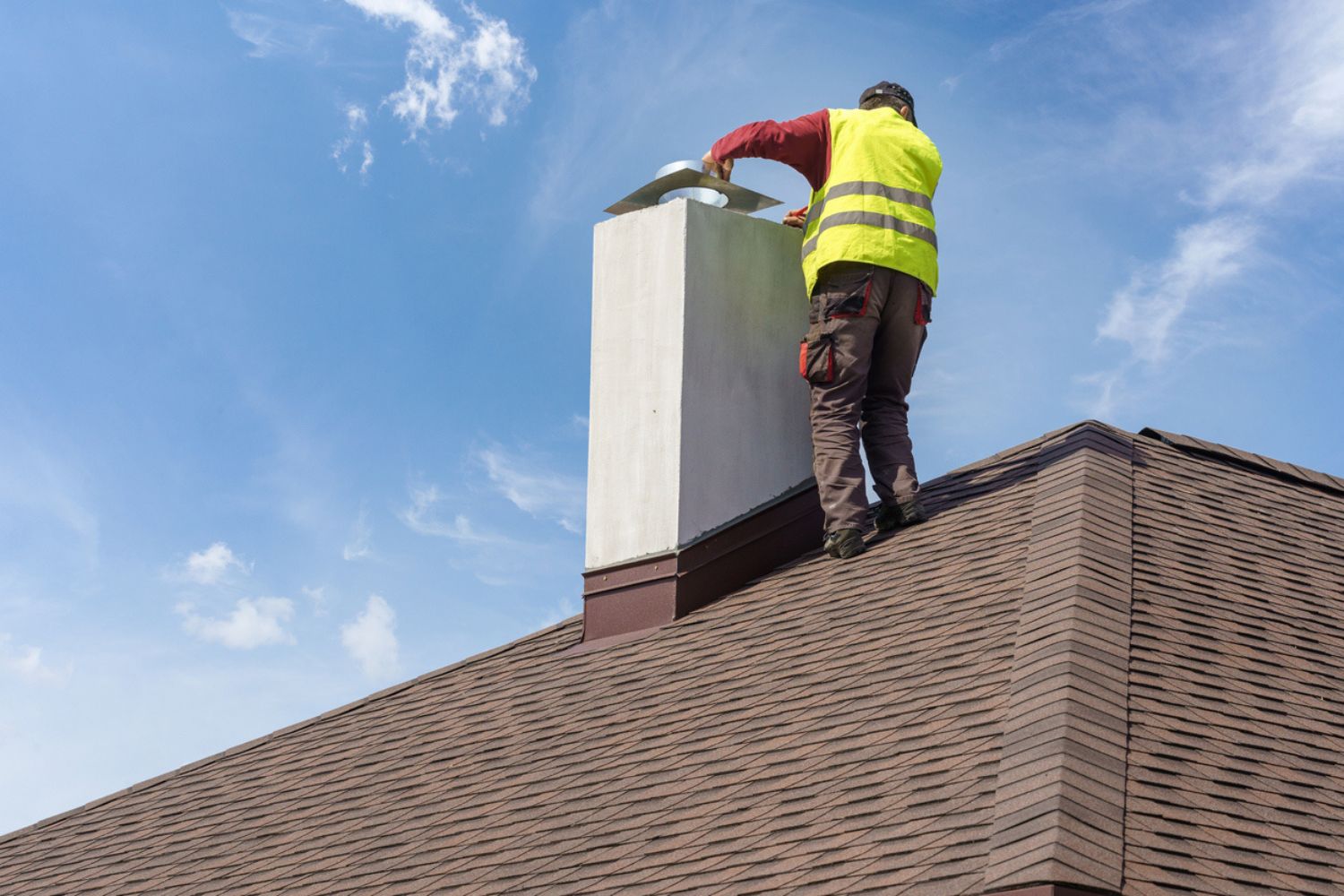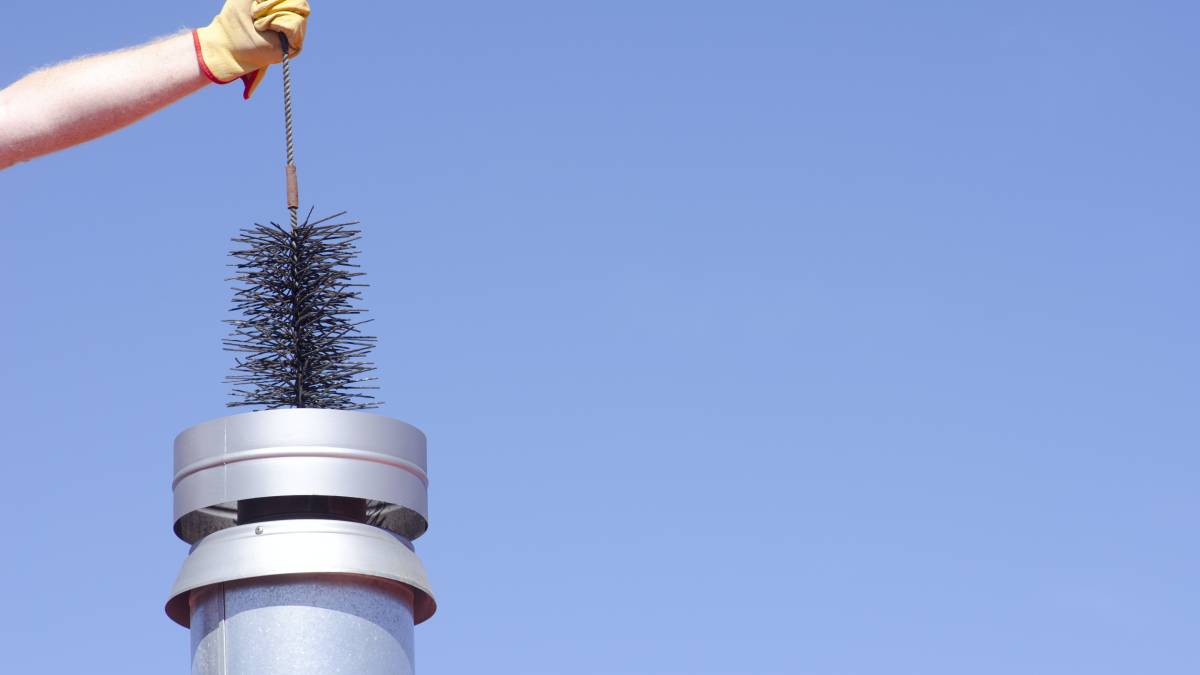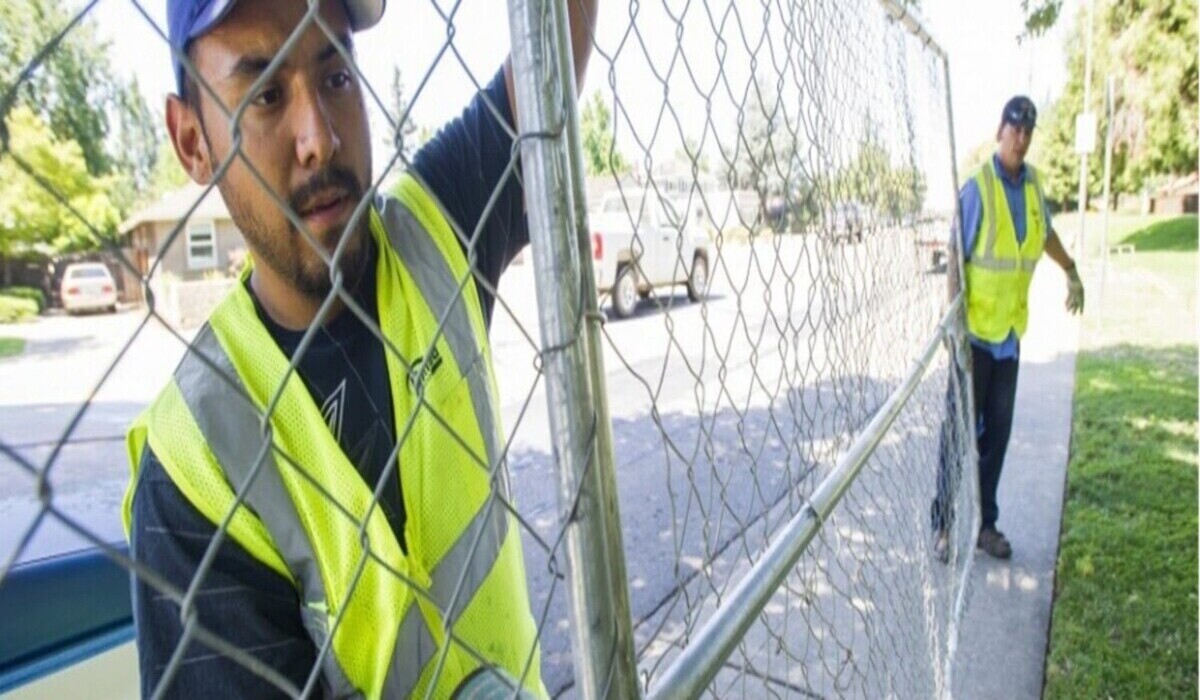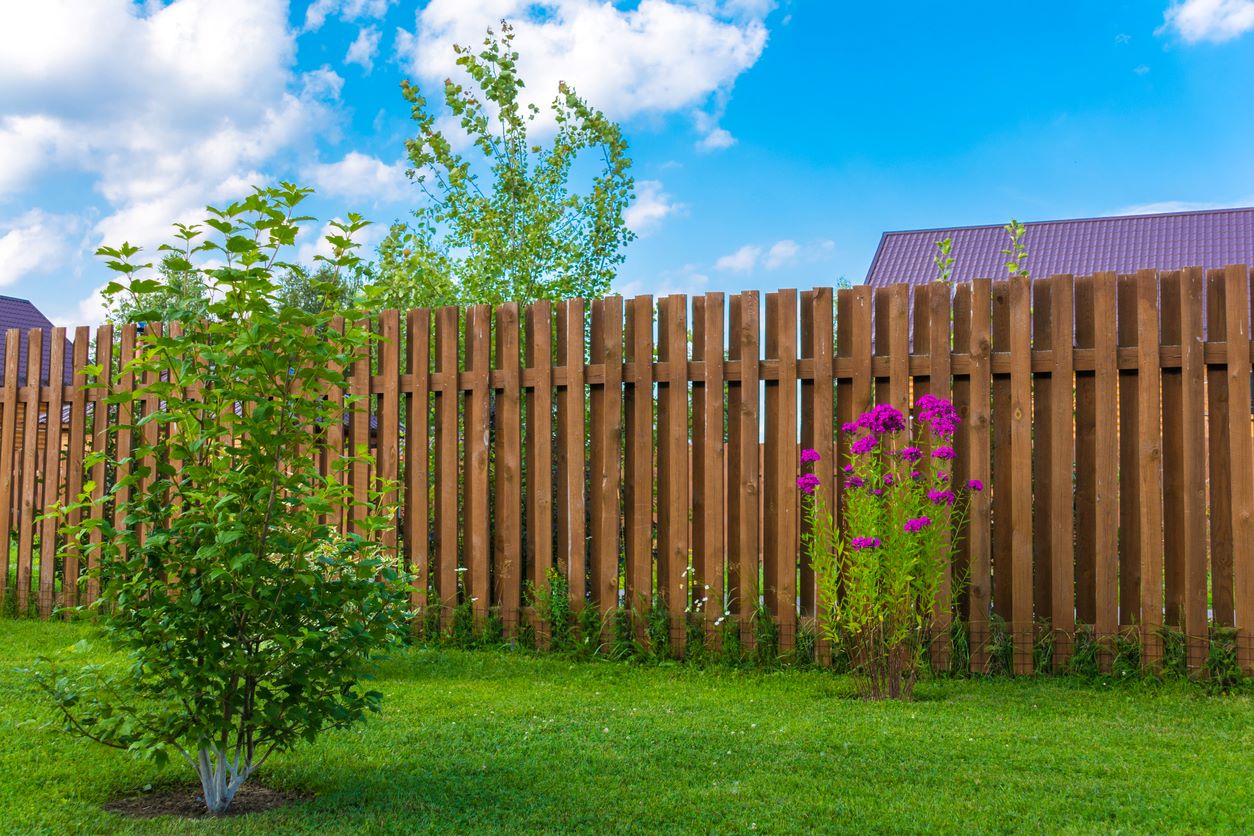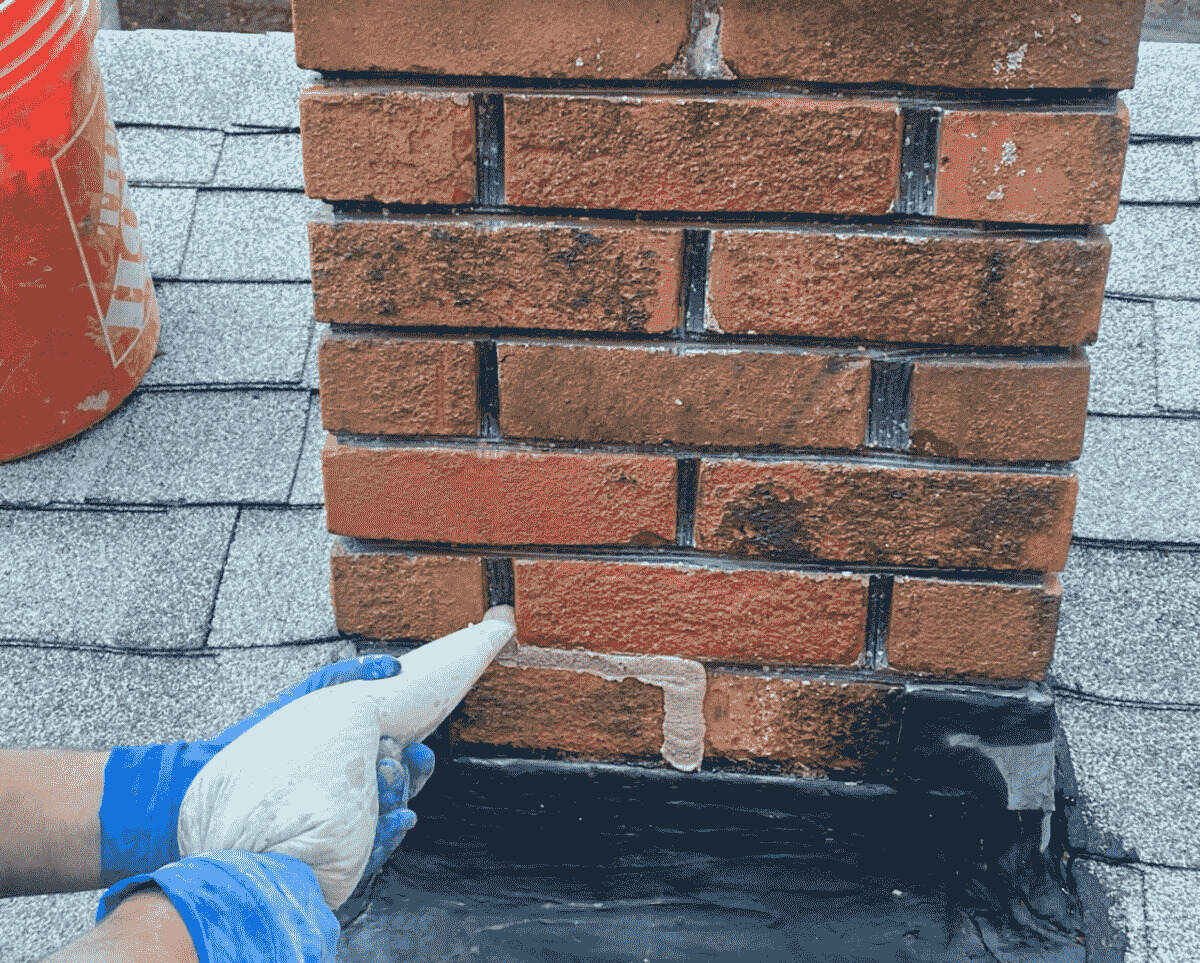Home>Home Maintenance>How Much Does Fence Repair Cost
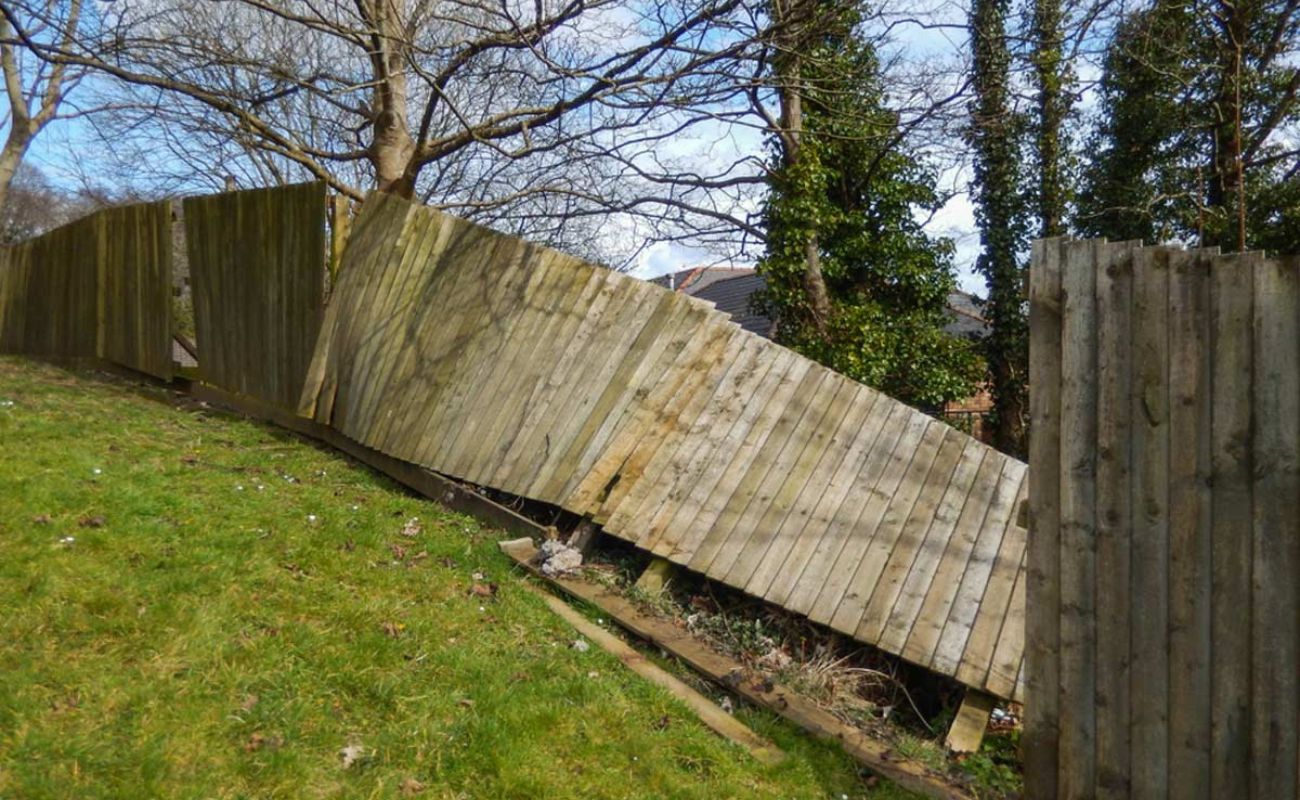

Home Maintenance
How Much Does Fence Repair Cost
Modified: March 6, 2024
Discover the average cost of fence repair and maintenance for your home. Get expert advice and find affordable solutions for all your home maintenance needs.
(Many of the links in this article redirect to a specific reviewed product. Your purchase of these products through affiliate links helps to generate commission for Storables.com, at no extra cost. Learn more)
Introduction
Having a well-maintained fence not only adds to the curb appeal of your home but also provides security and privacy. However, fences are subject to wear and tear over time, and they may require repair to ensure they continue to serve their purpose effectively.
Fence repair costs can vary depending on several factors, including the type of fence, the extent of the damage, and whether you choose to hire a professional or tackle the repairs yourself. In this article, we will explore the different factors that can affect the cost of fence repair, the different types of fence repairs you may encounter, and provide some tips for saving money on fence repairs.
So, whether you have a wooden, vinyl, aluminum, or chain-link fence, understanding the cost of repairs can help you plan and budget accordingly.
Key Takeaways:
- Fence repair costs vary based on factors like damage severity, materials, and location. Understanding these factors can help homeowners estimate expenses and make informed decisions about their repair projects.
- Homeowners can save money on fence repairs by obtaining multiple quotes, considering different materials, performing regular maintenance, and negotiating with contractors. Reusing salvaged materials and exploring local resources can also help reduce costs.
Read more: How Much Does A Concrete Fence Cost
Factors Affecting Fence Repair Costs
There are several factors that can influence the cost of fence repair. These include:
- Extent of Damage: The severity of the damage to your fence will impact the cost of repairs. Minor repairs such as replacing a few boards or fixing a gate may be less expensive compared to major structural damage.
- Materials: The type of materials used for your fence will also affect the cost of repairs. Wood and vinyl fences tend to be more expensive to repair compared to chain-link or aluminum fences.
- Size of the Fence: The size of your fence, measured in linear feet, will play a role in determining the overall repair cost. The longer the fence, the more materials and labor will be required.
- Accessibility: Depending on the location and accessibility of your fence, repairs may be more challenging and time-consuming, potentially affecting the overall cost.
- Location: The cost of materials and labor can vary depending on your geographic location. Areas with a higher cost of living or limited availability of contractors may have higher repair costs.
Key Takeaways:
- Fence repair costs vary based on factors like damage severity, materials, and location. Understanding these factors can help homeowners estimate expenses and make informed decisions about their repair projects.
- Homeowners can save money on fence repairs by obtaining multiple quotes, considering different materials, performing regular maintenance, and negotiating with contractors. Reusing salvaged materials and exploring local resources can also help reduce costs.
Read more: How Much Does A Concrete Fence Cost
Factors Affecting Fence Repair Costs
Several factors can influence the cost of fence repair. Understanding these factors can help you better estimate the expenses involved and make informed decisions about your fence repair project. Here are the key factors that can affect the cost:
- Type of Fence: The type of fence you have will significantly impact the repair costs. Wood, vinyl, aluminum, and chain-link fences all have different repair requirements and associated costs. Wood fences may require replacement of damaged boards, while vinyl fences may need sections replaced or repaired. Aluminum and chain-link fences may require re-tensioning, re-aligning, or patching any holes or damages.
- Extent of Damage: The extent of damage to your fence is another significant factor. Minor issues like loose screws or small cracks may be relatively inexpensive to repair, while severe damage, such as a portion of the fence being knocked down, would require more extensive repairs and be costlier. Assessing the extent of the damage will help you understand the scope of repairs needed and the associated costs.
- Materials: The materials required for the repair will also affect the cost. If specific materials need to be sourced or if there are special requirements for matching the existing fence, the cost can increase. Additionally, the cost of materials can vary depending on the type of fence you have. Wood and vinyl materials are generally more expensive than chain-link or aluminum.
- Permits and Regulations: In some cases, fence repairs may require permits or need to be done in compliance with local regulations. The cost of obtaining permits and ensuring compliance with regulations should be factored into the overall repair costs.
- Labor and Professional Assistance: The labor involved in the repair process can significantly affect the overall cost. If you choose to hire a professional contractor, their fees and expertise will contribute to the total expenses. The complexity and duration of the repair project will determine the amount of labor required and, subsequently, the cost.
- Location: Your geographic location can also affect the cost of fence repair. Areas with a higher cost of living or limited availability of contractors may have higher labor fees, which can impact the overall expenses. Additionally, transport and delivery costs for materials can vary depending on your location.
Overall, it’s important to consider these factors when estimating the cost of fence repair. Obtaining multiple quotes, conducting a thorough inspection of the damage, and understanding the specific requirements of your fence will help you make accurate cost projections and choose the best approach for your repair project.
Types of Fence Repairs
When it comes to fence repairs, there are various issues you may encounter depending on the type of fence you have and the specific circumstances. Understanding these different types of fence repairs can help you identify the problem and determine the appropriate solution. Here are some common types of fence repairs:
- Replacing Damaged Boards: For wooden fences, one of the most common repairs is replacing damaged or rotting boards. This may involve removing the affected boards and installing new ones properly.
- Patching Holes or Tears: If you have a chain-link or aluminum fence, you may come across holes or tears in the mesh. These can be repaired by patching the damaged area with compatible materials.
- Repairing Sagging or Misaligned Gates: Gates can experience issues like sagging or becoming misaligned over time. This can be due to loose hinges or posts, or the need for adjustments. Repairing gates may involve repositioning or replacing hardware to restore proper functionality.
- Fixing Loose or Broken Panels: Vinyl or aluminum fences may have loose or broken panels. These can often be repaired by replacing or re-securing the affected sections to bring them back into position.
- Adjusting Tension or Alignment: Chain-link fences may need adjustments in tension or alignment over time. This is done to ensure the fence remains sturdy and secure. Qualified professionals can re-tension the fence and align it properly for optimal performance.
- Mending Rusted or Damaged Metal Components: If you have an iron or steel fence, you may encounter rusted or damaged metal components. These can be repaired by sanding off rust, treating the affected area, and applying paint or protective coatings to prevent further damage.
- Replacing Missing or Broken Hardware: Hardware, such as screws, hinges, or latches, can wear out or break over time. Replacing missing or broken hardware is essential for the overall functionality and security of your fence.
It’s important to note that while some fence repairs can be carried out as a DIY project, others may require professional expertise, especially for more complex issues. Assessing the repair requirements and consulting with a fence repair specialist can help you determine the best course of action for your specific needs.
Average Cost of Fence Repair
The cost of fence repair can vary widely depending on several factors, including the type of fence, the extent of the damage, and the region where you reside. However, it’s still helpful to have a general idea of the average cost range you might expect when planning for fence repairs.
On average, the cost of fence repair can range from $200 to $800, with most homeowners spending around $400 to $600. This estimation includes both labor and materials. Keep in mind that this is just a rough estimate, and the actual cost can be higher or lower depending on the specific circumstances of your repair project.
Here are a few examples of average repair costs for different types of fences:
- Wood Fence: For a wooden fence, the cost can vary depending on the extent of the damage and the length of fence that needs repair. On average, repairing a 6-foot wooden fence can cost between $300 and $750.
- Vinyl Fence: Vinyl fence repairs may involve replacing damaged panels or sections. The cost generally ranges from $200 to $500, depending on the amount of repair work required.
- Chain-Link Fence: Repairing a chain-link fence can cost between $150 and $400, depending on the extent of the damage and the size of the fence. Patching holes or re-aligning the fence may fall within this price range.
- Aluminum Fence: The cost of repairing an aluminum fence can range from $200 to $600, depending on the specific repair needs. This may involve fixing loose panels, re-securing sections, or adjusting the alignment.
It’s important to note that these costs are average estimates and can vary significantly based on multiple factors, including the materials used, labor fees in your area, and the complexity of the repairs required. Obtaining multiple quotes from reputable contractors or fence repair specialists will give you a better understanding of the specific costs involved in your situation.
Additionally, it’s essential to consider any additional costs that may arise during the repair process, such as permits or the need to replace hardware or other accessories. Taking these factors into account when budgeting for fence repairs will help you plan more effectively and avoid unexpected expenses.
Get multiple quotes from different fence repair companies to compare costs. Consider the materials needed, labor, and any additional fees for a more accurate estimate.
Read more: How Much Does Invisible Fence Cost
Additional Costs to Consider
When budgeting for fence repair, it’s important to consider not only the direct costs of the repair itself but also any additional expenses that may arise during the process. Here are some additional costs to consider when planning for fence repairs:
- Permits and Regulations: Depending on your local regulations, certain fence repairs may require permits. The cost of obtaining permits varies by location and can range from a nominal fee to several hundred dollars.
- Specialized Tools and Equipment: Depending on the complexity of the repair, you may need to invest in specialized tools or equipment. For example, repairing a chain-link fence may require specific tools for tensioning the fence or patching holes. Factoring in the cost of purchasing or renting tools can help you budget more accurately.
- Replacement Materials: In some cases, the extent of damage may require replacing more than just a few boards or panels. If a significant portion of the fence needs replacement, the cost of materials can increase significantly. It’s important to consider the cost of materials, including any additional hardware or connectors.
- Disposal of Old Materials: If your fence requires the removal of damaged or old materials, you may incur costs for disposal. This might involve renting a dumpster or hiring a waste removal service. Be sure to include these costs in your budget.
- Landscaping and Repairs: Depending on the location of the fence and the extent of the repair work, there may be landscaping or repairs required once the fence repairs are complete. This can include reseeding grass, filling holes, or repairing any damage to nearby structures. It’s essential to consider these additional costs when planning your budget.
- Ongoing Maintenance: It’s also worth considering the long-term maintenance costs of your fence. Regular maintenance, such as staining or sealing for wood fences, can help prolong the lifespan and prevent future repair needs. Allocating funds for routine maintenance can save you money on future repairs.
By considering these additional costs, you can create a more comprehensive budget for fence repairs. It’s always a good idea to consult with professionals and obtain multiple quotes to get a clearer picture of the potential expenses involved in your specific repair project.
Remember, investing in high-quality materials and professional craftsmanship can help ensure the longevity and durability of your repaired fence, saving you money in the long run.
DIY vs. Hiring a Professional
When it comes to fence repairs, you may wonder whether it’s more cost-effective to tackle the project yourself or hire a professional. While DIY repairs may seem like a budget-friendly option, it’s important to weigh the pros and cons of both approaches before making a decision.
DIY Fence Repair:
Pros:
- Cost Savings: DIY fence repairs can save you money on labor costs. If you’re handy and have the necessary tools and skills, you may be able to complete the repairs without hiring a professional.
- Flexibility: With DIY repairs, you have the freedom to work on your own schedule and at your own pace. You can prioritize the repairs and make adjustments as needed.
- Sense of Accomplishment: Successfully completing fence repairs on your own can give you a sense of satisfaction and pride in your workmanship.
Cons:
- Limited Expertise: Unless you have experience with fence repairs, you may lack the necessary skills and knowledge to identify all the issues or carry out the repairs effectively. This could result in subpar repairs or the need to redo the work.
- Time-Consuming: Fence repairs can be time-consuming, especially if you’re not familiar with the process. DIY repairs may take longer to complete, potentially impacting your schedule or other responsibilities.
- Potential Mistakes: Improper repairs can lead to more extensive damage or even compromise the integrity and stability of the fence. Mistakes made during the repair process may end up costing you more in the long run if professional assistance is eventually required.
Hiring a Professional:
Pros:
- Expertise and Experience: Professional fence repair contractors have the knowledge and experience to identify the issues accurately and provide appropriate solutions. They can ensure that the repairs are done correctly and efficiently.
- Time-Saving: By hiring professionals, you can save time and effort. They have the necessary tools, skills, and resources to complete the repairs in a timely manner, allowing you to focus on other priorities.
- Quality Workmanship: Professionals can provide quality workmanship, ensuring that the repaired fence is durable and will withstand the test of time. This can help you avoid future repair costs.
Cons:
- Higher Cost: Hiring professionals will involve labor costs, which can be higher compared to DIY repairs. However, the cost may be worthwhile considering the expertise and quality of work provided.
- Limited Flexibility: When working with professionals, you will need to coordinate schedules and may have less flexibility compared to working independently on DIY repairs.
Ultimately, the decision to DIY or hire a professional for fence repairs depends on your skills, available time, budget, and the complexity of the repairs required. Consider the extent of the damage, the materials involved, and your comfort level with handling the repairs before making a decision. If in doubt, consulting with professionals for an assessment or obtaining multiple quotes can help you make an informed choice.
Tips for Saving Money on Fence Repair
Fence repairs can be costly, but there are several strategies you can employ to save money without compromising the quality of the repairs. Here are some helpful tips to consider when planning your fence repair project:
- Get Multiple Quotes: Before committing to a contractor or professional, obtain quotes from multiple sources. This will give you a better understanding of the average cost range in your area and allow you to compare prices and services offered.
- Consider Different Materials: If your fence requires extensive repairs, consider exploring different materials that may be more cost-effective. Compare the cost and durability of various options to choose the most suitable material for your needs and budget.
- Perform Regular Maintenance: Regular maintenance can help prevent major repairs in the future. Routinely inspect your fence for small issues and address them promptly before they escalate into more significant and costly repairs.
- Reuse and Salvage Materials: If possible, salvage and reuse materials from your existing fence. For instance, if only a section of the fence is damaged, you may be able to reuse undamaged materials to minimize costs.
- Consider DIY Options: If you have the necessary skills and tools, consider handling simpler repairs yourself. DIY repairs can save you on labor costs, but ensure that you’re confident in your abilities and only tackle projects within your skill level.
- Negotiate with Contractors: When working with professionals, don’t be afraid to negotiate the price. Compare quotes from different contractors and use them as leverage to negotiate a better deal.
- Reuse Existing Hardware: If the hardware on your fence is still in good condition, consider reusing it for the repairs. Salvaging hinges, latches, or other accessories can help you save on replacement costs.
- Be Proactive: Deal with small repairs promptly to prevent further damage and more expensive repairs down the line. Regularly inspect your fence and address any small issues before they escalate and become more costly to fix.
- Explore Local Resources: Check if there are local resources or community programs that offer assistance or discounts for fence repairs. Some organizations or government initiatives may provide financial support or subsidized services for certain repairs.
By implementing these tips, you can potentially save money on your fence repair project without compromising the quality and long-term durability of the repairs. Remember, it’s crucial to strike a balance between cost savings and investing in proper repairs to ensure the functionality and aesthetic appeal of your fence.
Conclusion
Fence repair is an essential part of maintaining the functionality, security, and aesthetics of your property. Understanding the factors that affect fence repair costs, knowing the types of repairs you may encounter, and considering the additional expenses involved will help you plan and budget effectively for your project.
Whether you choose to take on the repairs yourself or hire a professional, weigh the pros and cons of each approach. DIY repairs can save you money on labor costs but require time, skills, and knowledge. Hiring a professional ensures expert workmanship and saves you time and effort, but comes with a higher price tag.
To save money on fence repairs, obtain multiple quotes, consider different materials, perform regular maintenance, and negotiate with contractors. Reusing salvaged materials, handling smaller repairs on your own, and exploring local resources and discounts can also help you reduce costs without compromising the quality of the repairs.
Remember, investing in high-quality repairs and regular maintenance for your fence will not only save you money in the long run but also extend the lifespan of your fence and enhance the overall value of your property.
By incorporating these tips into your fence repair project, you can effectively manage the costs while ensuring a well-maintained and functional fence that complements your home for years to come.
Frequently Asked Questions about How Much Does Fence Repair Cost
Was this page helpful?
At Storables.com, we guarantee accurate and reliable information. Our content, validated by Expert Board Contributors, is crafted following stringent Editorial Policies. We're committed to providing you with well-researched, expert-backed insights for all your informational needs.
